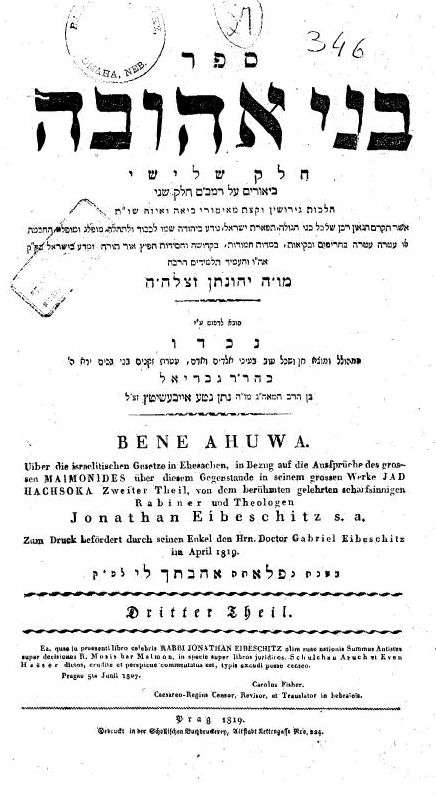Here is the title page to one of the volumes of בני אהובה, the 1819 publication of Rabbi Jonathan Eybeschutz's comments on the Rambam and SA Even Ha-ezer. As you can see, it was published in Prague by Doctor Gabriel Eibeschitz the "enkel" of Rabbiner und Theologen Jonathan Eibeschitz (it also includes notes by Rabbi Uri of Dresden, Dr. Gabriel's home town).

Doubtlessly you are wondering about Dr. Gabriel Eybeschutz. He was indeed a physician, and lived from about 1757 to 1849. According to one biographer he looked exactly like his grandfather, only without a beard, which may sound ad-hoc, but the same biography doesn't claim this about his other descendants, all of whom are noted. Incidentally, outside of the 'bad seed' line of R. Yonasan, namely his son Wolf and his progeny, only Dr. Gabriel was suspected of being a secret Sabbatian (grudgingly admitted by Mortimer Cohen, psycho-biographer of R. Jacob Emden). The story is that Dr. Gabriel was said to be Sabbatian, going to their meetings, and an acquaintance confronted him, telling him "You're so smart, what do you see in this nonsense?" He replied that he knows it's nonsense and he tells it to his Sabbatian acquaintances. Make what you will of that.
